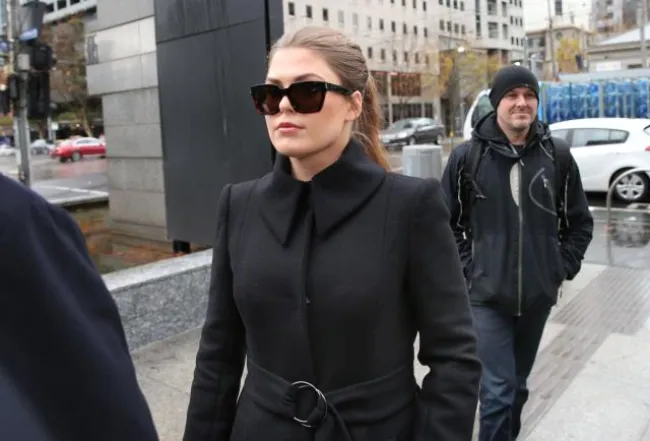Belle Gibson Scam Exposed: The Shocking True Story Behind Netflix’s Apple Cider Vinegar
Belle Gibson built an empire on lies, convincing the world she had beaten terminal cancer with nothing but clean eating and alternative medicine. Her wellness brand skyrocketed—until the truth came crashing down. Now, Netflix’s Apple Cider Vinegar exposes the shocking rise and fall of one of the biggest frauds in the industry.
Belle Gibson had it all—fame, fortune, and a devoted following who believed in her so-called miracle cure. She built an empire on deception, convincing the world she had beaten terminal brain cancer with nothing more than clean eating and alternative medicine. But when the truth came crashing down, so did her carefully constructed empire. Now, Netflix’s new limited series, Apple Cider Vinegar, peels back the layers of one of the biggest frauds in the wellness industry.
The Rise and Fall of a Wellness Con Artist
Belle Gibson wasn’t just another Instagram health guru—she was the wellness messiah for thousands. She peddled hope disguised as healthy living, convincing desperate people that modern medicine was unnecessary. She sold books, launched the wildly successful Whole Pantry app, and crafted the ultimate underdog narrative: a young, single mother who had miraculously cured herself of a terminal illness.
The problem? It was all a lie.
Gibson never had cancer. She never "cured" herself. Instead, she preyed on people’s fears, scammed charities, and pocketed the profits. When journalists exposed her deception, her multimillion-dollar brand crumbled overnight. What had once been an inspiring success story became a shameful cautionary tale.
From Scandal to Streaming: Netflix’s Apple Cider Vinegar
Netflix thrives on real-life scandals, and Belle Gibson’s story is as twisted as they come. Apple Cider Vinegar takes her fraudulent empire and transforms it into a gripping drama, blending fact with fiction to reveal how she manipulated an entire industry.
Starring Kaitlyn Dever as Gibson, the show highlights how easily she fooled publishers, tech investors, and even cancer patients. But this isn’t just another scammer biopic—it’s a brutal exposé of influencer culture and the dangerous power of social media.
Clive Rothwell: Silent Accomplice or Naïve Bystander?
Belle Gibson didn’t act alone. Her longtime partner, Clive Rothwell, may not have been the mastermind, but he certainly played a role. As the one who helped set up The Whole Pantry, registered domains, and supported Gibson’s rise, Rothwell wasn’t just a passive observer.
Netflix’s Apple Cider Vinegar explores his involvement through the character played by Ashley Zukerman. Was he complicit? Was he manipulated? Or was he simply too afraid to stop the train wreck before it was too late? Either way, his silence helped keep Gibson’s illusion alive far longer than it should have.
What About Belle Gibson’s Son?
One of the most unsettling aspects of Gibson’s story is how it affected her own child. While she used her son to craft the image of a struggling single mother, she kept him far from the media frenzy when the scandal broke.
Unlike his mother, Gibson’s son has remained out of the spotlight. Netflix deliberately omits details about him, protecting an innocent party from the wreckage of his mother’s deception. But one thing is certain—he grew up in the shadow of one of the most notorious frauds of the decade.
The Damage is Done—And It’s Still Happening
Belle Gibson may have been exposed, but her story is just one example of a much bigger problem. The wellness industry is filled with false promises, unproven "cures," and influencers eager to profit from fear and desperation.
Even today, social media is flooded with self-proclaimed health experts selling quick fixes, miracle diets, and dangerous misinformation. Belle Gibson was caught—but how many others are still out there?
Netflix’s Apple Cider Vinegar isn’t just entertainment—it’s a warning. A reminder that in the world of social media, the real danger isn’t cancer—it’s a lie wrapped in hope.
